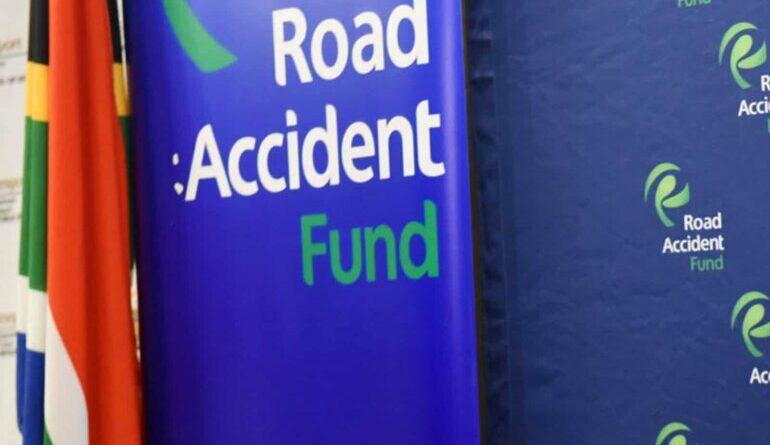Legal Experts Slam Road Accident Fund’s Push for Standardised Compensation Formula
South Africa’s Road Accident Fund (RAF) has come under intense scrutiny from leading personal injury law firms in a response to its proposed development of standardised formulae for calculating loss of earnings, loss of support, and general damages for road accident victims.
This is according to Kirstie Haslam, partner at DSC Attorneys, one of the law firms involved in the submission. “Legal experts argue that the RAF’s proposal not only misinterprets its own statutory mandate but also undermines the rights of victims by reducing their compensation to an algorithm-driven social benefit rather than an individualised legal entitlement,” she explains.
RAF’s Plan: Automation Over Justice?
At the core of the RAF’s controversial proposal is the creation of an online interactive platform that would automate the computation of settlement amounts based on standardised formulae. The RAF claims that the current system, which involves assessments by medical, actuarial, and psychology experts, is time-consuming, inconsistent, and opaque-and that automation will bring efficiency, fairness, and transparency.
However, attorneys specialising in personal injury law strongly disagree. They argue that the RAF Act (Act 56 of 1996) does not provide for the RAF to create a social benefits scheme, but rather requires it to compensate victims for their actual losses as determined through an individualised legal process.
Haslam highlights the Six Key Legal Objections:
1. The RAF is Exceeding its Legal Powers
The RAF is attempting to fundamentally alter the way damages are calculated without an amendment to the RAF Act. According to the Act, the Minister of Transport-not the RAF-has the power to set regulations, and any significant changes require Parliament’s approval. By acting unilaterally, the RAF is overstepping its legal authority and acting outside its mandate (ultra vires).
2. Compensation is a Legal Right, Not a “Product”
The RAF argues that damages should be treated as a standardised “product”, but this contradicts the law. Section 3 of the RAF Act explicitly states that the Fund’s objective is to provide compensation for “loss or damage wrongfully caused by the driving of motor vehicles.” This means that every victim’s claim must be assessed based on their unique circumstances-not by an impersonal algorithm.
3. Standardised Algorithms Cannot Account for Individual Needs
The proposal suggests that victims will be placed into “cohorts” and their compensation calculated using statistical models. However, legal experts argue that this erases the fundamental principle of individual assessment, which is crucial to ensuring fair compensation.
For example:
A high-earning professional and a low-income worker may receive similar payouts, even though their actual loss of earnings differs significantly.
A young, single mother who loses her income due to an accident may receive a standardized settlement that does not reflect her real financial needs.
4. Automation Will Lead to More Lawsuits, Not Fewer
While the RAF claims automation will reduce litigation, personal injury lawyers predict the opposite:
If victims receive unfairly low compensation, they will have no choice but to take the RAF to court.
Unlike human experts, an algorithm cannot be cross-examined or reasoned with-making legal challenges inevitable.
5. Lack of Transparency and Justification
Under the current system, medical and actuarial experts provide detailed reports justifying the amounts claimed. With an automated system, victims would receive a computer-generated figure-but no explanation as to how it was calculated. This lack of transparency raises serious concerns, particularly in a constitutional democracy where state actions must be justifiable and accountable.
6. The Real Issue: RAF’s Financial Mismanagement
Legal experts argue that the real reason behind this proposal is the RAF’s ongoing financial crisis. The RAF has a long history of mismanagement, with billions lost due to inefficiency, corruption, and legal disputes. Instead of fixing its internal problems, the RAF is now attempting to cut costs by reducing payouts to victims.
The Way Forward: Legal Action Against the RAF?
Given the serious legal concerns, personal injury law firms are prepared to challenge the RAF’s proposal through:
Legal action to prevent the RAF from implementing unlawful changes.
Lobbying Parliament to ensure that any modifications to the compensation system are made lawfully and with public participation.
Public awareness campaigns to educate road accident victims about their legal rights.
Victims Must Not Be Reduced to Statistics
Haslam says that South Africa’s road accident victims deserve fair and just compensation, not a one-size-fits-all formula dictated by a cash-strapped RAF.
“DSC and other reputable personal injury law firms are standing firm in their opposition to this unlawful and unjust proposal-and will continue to fight for the rights of every individual victim to receive the compensation they are legally entitled to,” she says.
Expert attorneys DSC, Sohn & Wood Attorneys and A Batchelor & Associates, who jointly submitted the objection to RAF all feel that as the battle over the RAF’s controversial reforms intensifies, one thing is clear: this is not just about numbers-it is about justice.




